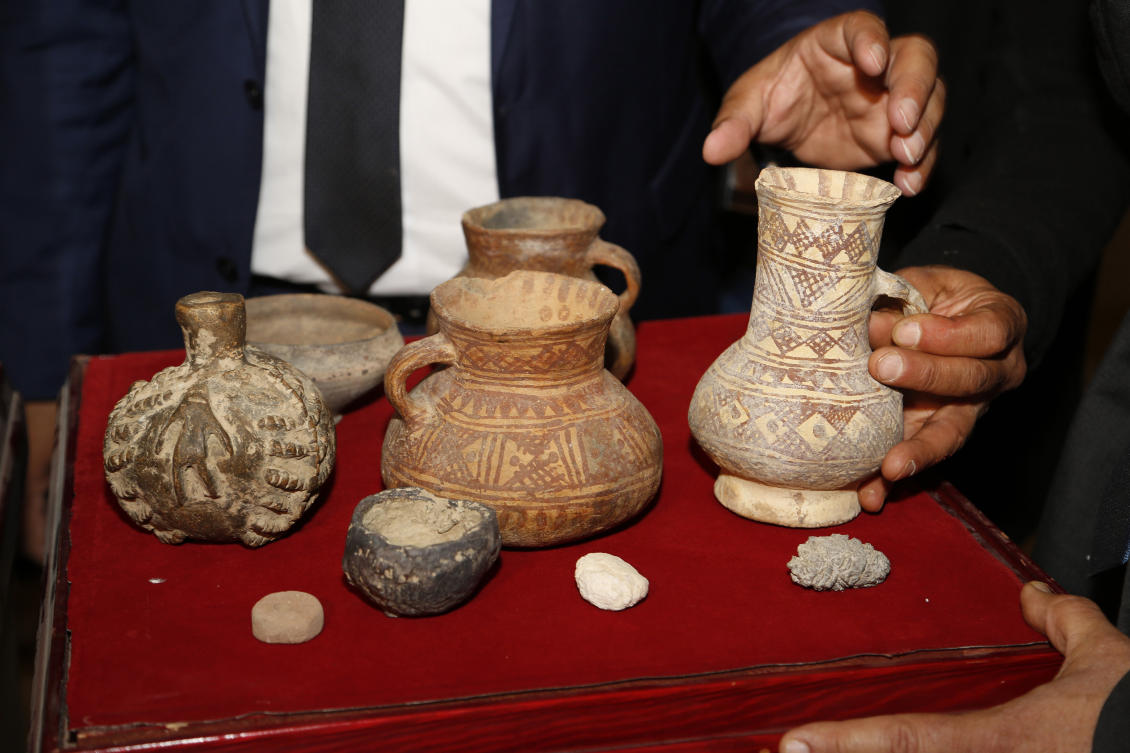Tunisia crisis escalates as police summon opposition figures
TUNIS: Tunisian anti-terrorism police summoned the country’s main opposition figure for questioning on Friday, as a political crisis deepens in the wake of President Kais Saied’s move to dissolve parliament and impose one-man rule.
Rached Ghannouchi, head of the Islamist Ennahda party and speaker of the dissolved parliament, was summoned to appear later on Friday, his office said, after investigations were opened into other members of the chamber who had defied Saied.
Saied demanded that investigations be carried out after members of parliament held an online session on Wednesday and voted to revoke all the emergency measures he has imposed — despite his decree last summer suspending the chamber.
The president accused those who took part in the session, along with Ghannouchi whose office had announced the move, of conspiring against state security and he ordered the justice department to open legal proceedings against them.
Last month Saied took control of the judiciary, replacing a top council whose job was to ensure judicial independence, with judges he selected himself.
Saied’s moves raise the prospect of a crackdown on the opposition as Tunisia’s main players grow more active in opposing his attempts to remake the political system in what they call a coup.
“It’s a turning point in targeting his opponents,” said deputy parliament speaker Samira Chouachi.
Saied has defended his seizure of most powers last summer as necessary to save Tunisia from a corrupt, self-serving elite he paints as responsible for years of political paralysis and economic stagnation.
He has also vowed to uphold the rights and freedoms won in a 2011 revolution that brought democracy, and so far there have been few arrests or attempts to silence critics.
However, late on Thursday Saied said he would not call new parliamentary elections yet despite dissolving the chamber, and railed against those who took part in Wednesday’s session.
“There will be no dialogue with those who tried a coup and seek to divide Tunisians,” he said, suggesting those who opposed his moves may not be allowed to run in future elections.
OPPOSITION
Ennahda and the Free Constitutional Party, which leads in opinion polls, have both said they will oppose Saied’s plans for a referendum on a new constitution that he plans to introduce.
The parties are sworn ideological enemies and although there is no sign that they could work together against Saied, their more active opposition to his moves suggests the crisis is intensifying.
“Saied, who usurped power, should immediately end the exceptional measures,” said the Free Constitutional Party’s leader Abir Moussi.
The strongest opposition to Saied since last summer has come from Ennahda, which has been a main player in successive governments since the revolution.
Moussi and her Free Constitutional Party decry Ennahda’s Islamist background and praise the autocratic regime of the late Zine El Abidine Ben Ali who was ousted in 2011.
The United States, a major donor to Tunisia since the revolution, has voiced concern at Saied’s dissolution of parliament and threats to investigate lawmakers, and urged “a swift return to constitutional government.”
Saied is seeking international funding to avert a crisis in public finances amid growing economic pain for Tunisians after years of political bickering.
The UGTT labor union, the most powerful political body in the country with more than a million members, is meanwhile contemplating a general strike to demand a dialogue on both political and economic reforms. It had previously urged Saied to dissolve parliament but also to hold rapid elections afterwards.




